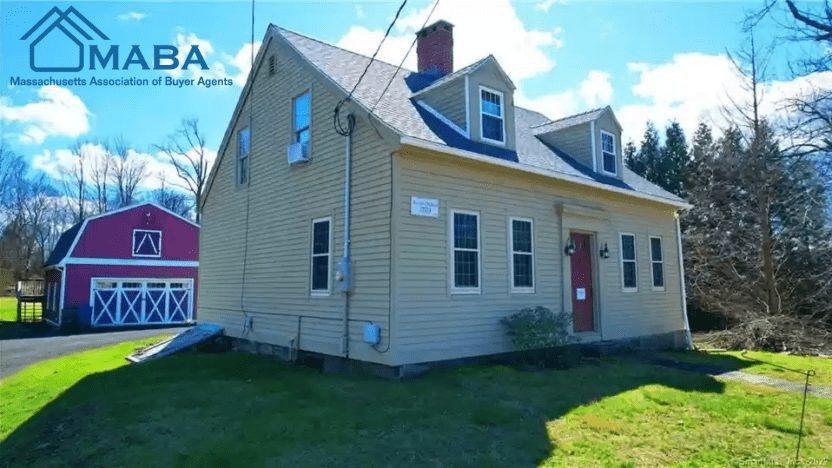The case for building starter homes: MABA Massachusetts RealEstate HomeOwnership
When was the last time you drove by a sign advertising a community of new two bedroom starter homes? In recent years, the starter home has gone by the wayside due to higher building costs, including regulatory compliance and rising materials prices. However, these smaller, more affordable homes would meet the needs of a large portion of the market amid the nation’s affordability crisis.
Priced out a starter home, as defined by Realtor.com, is typically less than two thousand square feet with a lower price tag compared to higher end homes, usually purchased by lower-income, younger buyers. According to a study by the National Association of Home Builders (NAHB), for every one thousand dollars that the final price of a new home increases, whether it be from an expensive lumber package or cumbersome local regulations, one hundred seventeen thousand nine hundred and thirty two households are priced out of the market for a mortgage on that house. The study also found that the pandemic added additional uncertainty to the market, particularly for first-time homebuyers. Where did they go?
Local land use regulations that make it expensive, time-consuming and risky to develop lots for new homes have contributed to the death of the starter home. It has gotten more expensive to build housing in the last few years, so building smaller homes that return smaller profits became a less attractive business model for builders. Because building new homes is financially risky, homebuilders have an incentive to build larger, more expensive homes that yield a larger return on their investment.
America has seventy two million millennials, people aged twenty five through forty, who make up more than a third of the homebuying market. One might expect the residential construction industry to respond to that demand by building homes at prices that that generation can afford. Instead, over the last five years, the number of starter homes has decreased by half, to just three hundred thousand starter homes on the market in September 2021, according to Realtor.com. The demand for starter homes is strong and consistent. The problem is that supply is not keeping pace with demand. Market forces are working against the millennial cohort.
We’ve got baby boomers looking to downsize, institutional investors acquiring smaller homes as an investment, and other actors that are reducing the supply of housing for low and moderate income families. Starter homes offer opportunity, the market is ripe for more of these smaller homes. And because these market forces seem unlikely to change, the price of starter homes has been going up. In October 2021, the average sales price of a starter home came in at two hundred and sixty thousand dollars, up eleven percent year over year. In markets where cost per square foot is lower, like in the South, building this type of home would be even more advantageous for homebuilders looking to diversify their portfolio.
Policymakers at the state and local levels can help by reducing regulatory barriers and financing challenges that discourage production of starter homes and other housing that is affordable to low and moderate-income households. And the housing industry needs to look at smaller homes as an important segment of the market. The incentives are pushing homebuilders to produce larger, more expensive homes. But the demand for starter homes is strong, and it’s not going away. For some builders, this could be a good time to jump back into this market and help bolster housing opportunity for more families.
Jerry Konter, a Georgia-based builder with over forty years of experience in residential construction, is NAHB’s 2022 Chairman of the Board. Konter is the founder and president of Konter Quality Homes, which he established in 1977 in his home town of Savannah, Ga. The company builds a broad range of designs in production home communities and is also a custom builder. Over the years, it has constructed more than two thousand and two hundred single family homes and seven hundred multifamily units in the Savannah area.
The post The case for building starter homes appeared first on Boston Agent Magazine.
First Time Home Buying in Massachusetts
 MABA Buyer Agents help first time home buyers reduce the stress and frustration normally associated with buying a home or condo – especially for first time home buyers.
MABA Buyer Agents help first time home buyers reduce the stress and frustration normally associated with buying a home or condo – especially for first time home buyers.
As a first time homebuyer in Massachusetts, you can turn to our non-profit organization to help you understand and navigate the complexities of the entire Massachusetts real estate transaction, from mortgage pre-approval until you are handed the keys to your new home or condominium. Each of our member buyer's brokers and agents works only for their buyer-clients and never for the seller of the home or condo that their buyers want to buy.
MABA Buyer Agents will take the time to learn about you and your real estate goals, help you understand your options, including first time home buyer programs, properties and/or condominium associations, estimate real property values and put together a negotiating strategy to help you increase the odds of getting your offer accepted in our competitive Massachusetts real estate market. After advocating to get your offer accepted, your MABA buyer's agent will be there for you at your home inspection and help you protect your deposit through the inspection, purchase & sale and financing contingency periods.
You can buy your first home or condo with confidence knowing that your MABA buyer agent is committed to saving you time and money and helping you make your best home buying decision.
Buyer Agency in Massachusetts Explained in this must see video:
Article From: "Jerry Konter" Read full article
Get Started with MABA
For no extra cost, let a MABA buyer agent protect your interests



